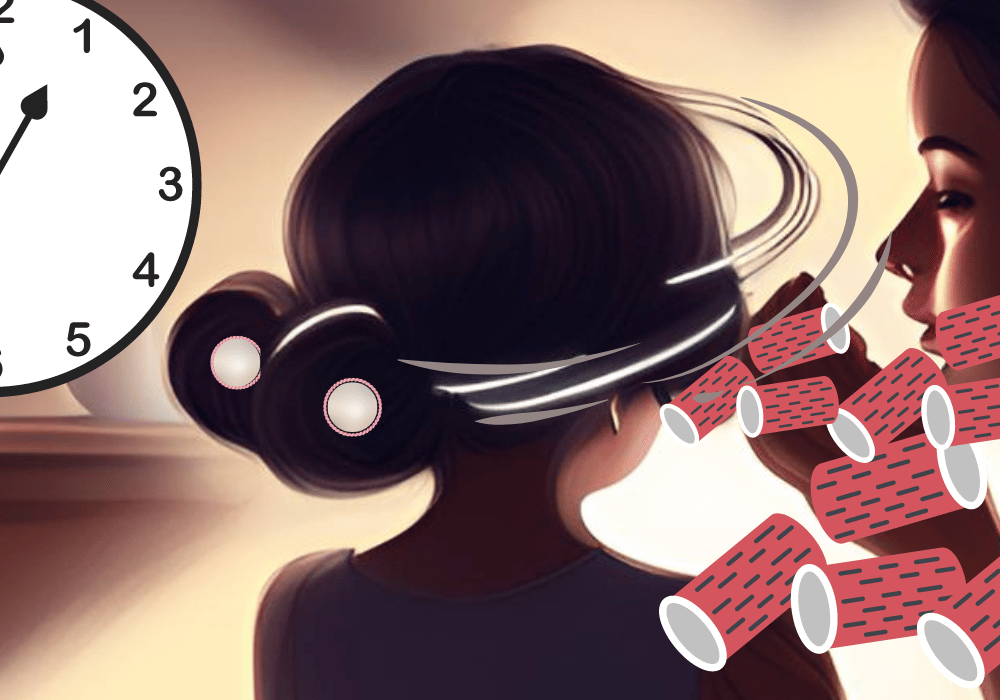I listened to an Abraham-Hicks clip about how we live by the 10/90 rule in creating our reality. Some of us humans live 90 percent of the time in exploring contrast and living in fear and angst and living only 10 percent in our desired state. In so doing we have “become believers of service and that we have to suffer to have gain.”
So, the question I asked myself is: How have I been living most of my life? Which majority percentage wins—fear and angst or living in my desired reality? As I listened further and hearing these words—service, sacrifice, and suffering it brought me back to a time when I was a little girl (I might have been 8 years old) in Mufulira, Zambia. My mom, her girlfriends, and their daughters got together to beautify us with a hair makeover.
With the curlers ready they decided to curl our hair together. There we were—three girls, and the three moms. I had very straight hair, and I was excited to hear that I would soon be having curly hair and that the curls were meant to last longer with the curling packs they had. I remember, I was sitting on a chair along side two other girls. The makeover began, and the process took forever. Or maybe I just had no patience. I watched the clock ticking and ticking and with the curlers in my hair I started to feel sleepy. I told my mom, “Mommy, I am so tired; I want to go to sleep.” She responded, “No pain, no gain in beauty.” That had a significant impact on me because it influenced my understanding of what I thought were the important elements for success and appearances.
Hence when I heard the words “service, sacrifice, and suffering,” from the video clip I remembered that scene. Though my memory also contained seeing the jittery excitement of the moms, for me the memory of tiredness was more vivid and my bed calling me was more inviting than sitting endlessly for hours waiting and waiting for the makeover to be over.
The curling evening finally ended. However, the next day after I washed my hair, I was quite disappointed—the curls had washed out, and I was back to having straight hair. The two other little girls had a successful makeover and had their bouncy curls. I looked in the mirror with so many questions. Was it because I had a stubborn streak and all I really wanted was sleep? Maybe if we had kept the curlers on longer, it would have worked. Yes, perhaps my mom had to cut the waiting time shorter because I was sleepy and impatient.
Although those little girls do not fully represent the 10/90 rule reality, they highlight how various sources of influence can profoundly convey the message of “no pain, no gain” in beauty. For me, that was the first experience that led me to hold on to the misconception that a beautiful life required some energy depleting sacrifice. As I share this story, it illustrates what I have been doing and what others may also resonate with—the doubt, uncertainty, and sacrifices we face. I continued to sacrifice sleep and rest, constantly pushing myself to serve and strive to beautify my life, often at the expense of my body. I would get sick, then stop pushing, only to repeat this pattern over and over.
Listening to the Abraham-Hicks clip reminded me to be aware of my choices and note where they fall within a 10/90 reality. Do I want my life to remain at 70, 80 or 90 percent mostly in fear, sacrifice, and struggle. Not at all.
What kind of makeover do we truly want in our lives, and do we really need one? I will be fine to twirl and curl my hair and also to keep it as it is. Perhaps what is more important for me from today onwards is about consciously being aware of where my focus is and where I want it to be. Living in frequency with a joyful heart, and renewed vitality. That would probably have to be my 90 percent priority.


I can so relate to this Amor and thank you for your insights!
Thank you Sibylle!
Thank you, Amor. And also a reminder of how others can “impose” their ideas of joy on us. With all their good intentions, it can have a negative effect on us.
Yes. “If done with disregard for the other, imposing one’s will can lead to suppressing their voice.”